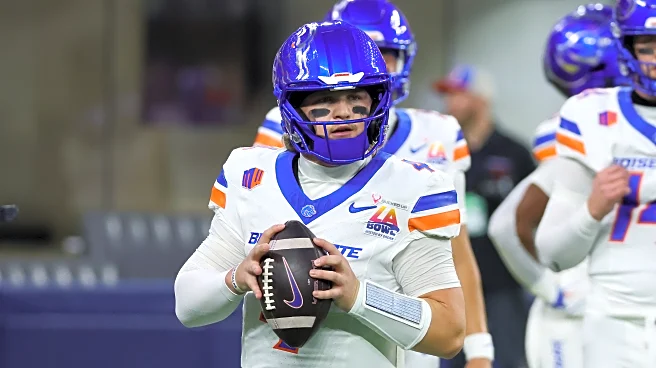Rapid Read • 8 min read
DreamWorks' animated film 'KPop Demon Hunters' has gained significant attention for its fictional K-pop bands, Huntrix and Saja Boys, which have become popular musical acts since the film's release. The bands are drawing comparisons to Riot Games' virtual girl group, K/DA, known for its success in the virtual K-pop scene. K/DA, formed in 2018, features characters from the game League of Legends and has achieved notable success with its debut single 'Pop/Stars'. The similarities between K/DA and Huntrix include their animated nature, catchy K-pop anthems, and collaborations with real-world K-pop artists. Despite the comparisons, the creators of 'KPop Demon Hunters' have not extensively commented on the influence of K/DA, although the film's music supervisor acknowledged it as one of several inspirations.
AD
The rise of virtual K-pop bands like Huntrix and K/DA highlights a growing trend in the entertainment industry where fictional characters are used to create real-world musical success. This trend could reshape how music is marketed and consumed, offering new opportunities for cross-media storytelling and fan engagement. The success of these virtual bands demonstrates the potential for animated characters to compete with real-world artists, potentially influencing the future of music production and distribution. Additionally, the popularity of these bands may serve as a gateway for new fans to explore the broader K-pop genre, impacting the global music landscape.
As 'KPop Demon Hunters' continues to gain popularity, there is potential for DreamWorks to expand the fictional bands into real-world virtual acts, similar to K/DA's trajectory. This could involve live performances, music videos, and social media interactions, further blurring the lines between fiction and reality in the music industry. The continued success of these virtual bands may encourage other entertainment companies to explore similar ventures, potentially leading to a proliferation of virtual musical acts.
The emergence of virtual K-pop bands raises questions about the nature of celebrity and authenticity in the digital age. As audiences become more accepting of virtual performers, traditional notions of stardom may evolve, challenging the dominance of human artists. This shift could also impact the economics of the music industry, as virtual bands may offer cost-effective alternatives to traditional music production and touring.
AD
More Stories You Might Enjoy












